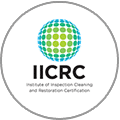As a property owner, ensuring the safety of yourself and your loved ones is crucial. Fire damage is a serious threat that can cause irreversible damage to your belongings and pose a significant threat to your safety. By taking proactive measures to prevent fires, you can protect your property and maintain a secure environment. In this section, we will provide you with essential fire damage prevention tips that you can implement today to minimize fire risks and hazards.
Key Takeaways:
- Implementing fire damage prevention tips can minimize the risk of fire incidents.
- Understanding common fire risks and hazards is essential before implementing prevention measures.
- Proper storage and handling of flammable materials can significantly reduce fire risks.
- Creating a fire-safe environment involves installing smoke detectors, fire extinguishers, and having an evacuation plan.
- Regularly inspecting wiring and avoiding overloaded outlets is crucial for maintaining electrical safety.
Understanding Fire Risks and Hazards
Before you can effectively prevent fires, you need to understand the common fire risks and hazards that exist in homes and businesses. By being aware of these risks, you can take steps to mitigate them and reduce the likelihood of a fire occurring.
- Electrical Hazards: Faulty wiring, overloaded outlets, and damaged electrical cords are all common electrical hazards that can lead to fires. It’s important to regularly inspect your electrical systems and replace any damaged or outdated components to minimize the risk of a fire.
- Flammable Materials: Substances such as gasoline, oil, and paint are highly flammable and can easily ignite if not stored and handled properly. Always store these materials in well-ventilated areas away from heat sources and follow proper storage and handling procedures.
- Cooking Accidents: Cooking is a leading cause of home fires. Grease fires and leaving cooking food unattended are common culprits. When cooking, always stay in the kitchen, keep flammable materials away from the stove, and never leave food unattended.
- Smoking: Smoking is a significant fire risk, particularly in homes with indoor smoking and improper disposal of cigarettes. To minimize this risk, it’s best to smoke outside and properly dispose of cigarette butts in a fire-safe container.
By understanding these common fire risks and hazards, you can take proactive steps to minimize them and reduce the likelihood of a fire occurring in your home or business.
Maintaining Electrical Safety
Electrical safety is crucial for preventing fires in your home or workplace. Follow these tips to reduce the risk of electrical fires:
- Regular Inspections: Have a licensed electrician inspect your electrical system at least once every 5 years or when you notice any warning signs like flickering lights, tripping breakers, or burning smells.
- Avoid overloading: Never overload outlets or extension cords. Spread out your electrical devices and use power strips with surge protection.
- Use correct wattage: Always use light bulbs and appliances with wattage ratings that match the circuit or outlet. Using too high wattage can lead to overheating and fires.
- Install Ground Fault Circuit Interrupters (GFCIs): These safety devices quickly cut off power if they detect a ground fault, protecting you from electrocution and fire.
- Avoid DIY electrical work: Hire a licensed electrician for any electrical installations or repairs, and avoid DIY electrical work, which can lead to dangerous situations.
If you notice any warning signs or have concerns about the safety of your electrical system, contact a licensed electrician immediately.
Creating a Fire-Safe Environment
Protecting your property from fire damage requires implementing fire prevention measures that create a fire-safe environment. Here are some crucial steps:
- Install Smoke Detectors: Smoke detectors are essential for early detection of fires. Make sure you have a sufficient number installed in every room and test them regularly to ensure they are in working order.
- Keep Fire Extinguishers Readily Available: Place fire extinguishers in easily accessible areas throughout your property. Make sure everyone knows where they are and how to use them properly.
- Create an Evacuation Plan: Plan an escape route and practice it with your family or colleagues. Make sure everyone knows where to go in case a fire breaks out.
Take a look at this illustrative infographic to reinforce the importance of fire prevention measures:
Benefits of a Fire-Safe Environment
Implementing fire prevention measures creates a secure environment and brings multiple benefits:
| Benefits | Description |
|---|---|
| Reduced Risks | By creating a fire-safe environment, you reduce the risks of fire incidents, thereby decreasing the likelihood of property damage or loss of life. |
| Peace of Mind | Establishing fire prevention measures gives you peace of mind, knowing you have taken steps to protect your property and the people in it. |
| Lower Insurance Premiums | Homes and businesses that implement fire prevention measures are often eligible for lower insurance premiums due to the reduced risk of fire damage and loss. |
By prioritizing fire prevention measures, you create a safer, more secure environment for yourself and those around you. Take the necessary steps to establish a fire-safe environment and reap the benefits it brings.
Proper Storage and Handling of Flammable Materials
Proper storage and handling of flammable materials is critical to preventing fire incidents. Ignoring the importance of this step can lead to disastrous consequences for your property and environment. Below are some essential tips that you can follow to store and handle flammable materials safely:
- Read the labels carefully: Always read the labels and instructions that come with the flammable materials. This information will tell you how to handle, store, and dispose of the substance safely.
- Store in a well-ventilated area: Always store flammable materials in a cool, dry, and well-ventilated area. Avoid storing them in places that are subject to direct sunlight, heat, or ignition sources.
- Use fire-resistant containers: Use approved fire-resistant containers for storing flammable liquids or gases. If possible, use the original containers that the materials came in.
- Properly label containers: Always label your containers properly and clearly, indicating the contents, hazards, and handling instructions for the substance.
- Avoid overloading: Never overload shelves, cabinets, or storage areas. Keep the storage area neat and tidy to avoid tripping over anything and causing an accident.
- Keep away from ignition sources: Keep flammable materials away from ignition sources such as cigarettes, open flames, sparks, or electrical equipment.
- Proper disposal: Dispose of flammable materials according to the instructions on the label or regulations in your area. Never pour them down the drain or trash them in normal trash cans.
Following these tips will help you to create a safe environment free from fire hazards. A well-managed storage area is critical to mitigating the risk of fire caused by flammable materials. To help you remember these safety tips, refer to the image below:
Conclusion
By prioritizing fire damage prevention, you are taking an important step in protecting your property and loved ones. Remember, being proactive is always better than recovering from a fire incident. Make sure to implement the tips outlined in this article, such as understanding fire risks, maintaining electrical safety, creating a fire-safe environment, and properly storing flammable materials.
Regularly reviewing and updating your prevention measures can make a significant difference in avoiding fire incidents. Stay vigilant and make sure everyone in your household or office is aware of the necessary fire prevention steps.
Thank you for taking the time to read through these essential fire damage prevention tips. By following them, you are making a significant contribution towards ensuring a safe and secure environment.
FAQ
What are some essential fire damage prevention tips?
Essential fire damage prevention tips include maintaining electrical safety, creating a fire-safe environment, properly storing and handling flammable materials, and understanding fire risks and hazards.
What are common fire risks and hazards to be aware of?
Common fire risks and hazards include faulty electrical wiring, flammable materials, and cooking accidents. It’s important to understand these risks to effectively prevent fires.
How can I maintain electrical safety to prevent fires?
To maintain electrical safety, regularly inspect wiring, avoid overloaded outlets, use surge protectors, and address any electrical issues promptly. These measures will help reduce the risk of electrical fires.
What steps can I take to create a fire-safe environment?
Creating a fire-safe environment involves installing smoke detectors, having fire extinguishers readily available, and creating a family or office evacuation plan. These measures are essential for preparedness and minimizing damage.
How should I store and handle flammable materials safely?
Properly storing and handling flammable materials requires storing them in fire-resistant containers, ensuring proper ventilation, and following guidelines for different types of flammable liquids, gases, and substances.
Why is prevention better than recovery when it comes to fires?
Prevention is always better than recovery because it helps reduce the risk of fire incidents and minimize damage to your property. By implementing fire damage prevention tips, you can create a secure environment for yourself and your loved ones.






